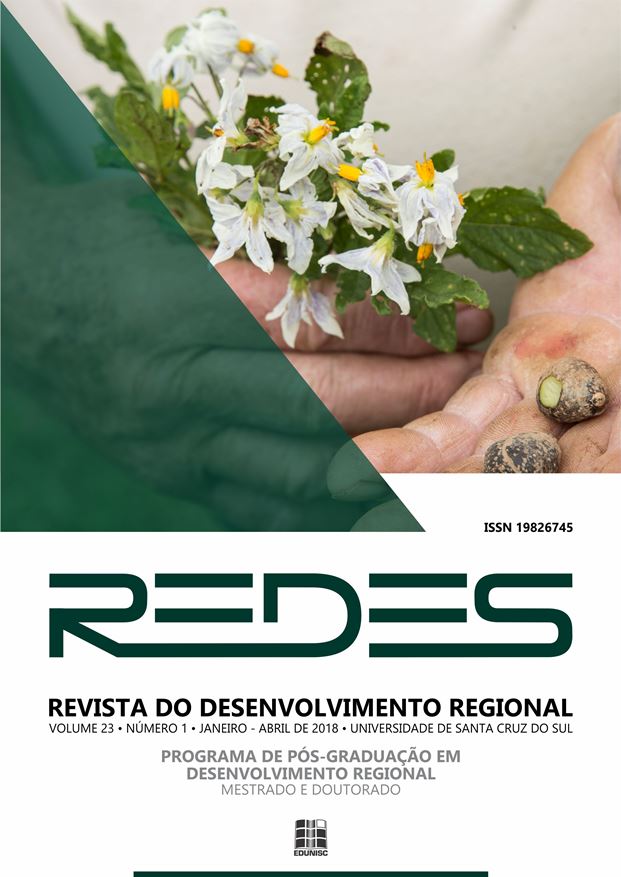Economic participation of subsistence activities in family farm
DOI:
https://doi.org/10.17058/redes.v23i1.6780Keywords:
Family Farm. Subsistence. Heterogeneity. Commercialization.Abstract
This article comprises a Multiple Case Study on the economic importance of subsistence activities for family farms of Rio Grande do Sul Brazil has different characteristics when it comes to agriculture. Among this diversity, it stands out with social and economic importance of family farming, which encompasses a significant percentage of the population in the country, generating jobs and income. However, this family farm is heterogeneous, causing within a state, as the case of Rio Grande do Sul, there is a diversity of situations in this sector. Therefore, this study raised empirical data in two different regions of the state, Missions and North, to identify characteristics that distinguish family farming of the two realities. The aim of the study was to identify the economic importance of subsistence activities compared to the commercial activities of family farming Dezesseis de Novembro (Region Missions) and Sertão (Northern Region) in Rio Grande do Sul, identifying heterogeneity factors in the industry. For the study were possible, we selected five representative family farming production units of the sector in each municipality. As a main result, it is emphasized that subsistence activities are developed in greater numbers and has greater economic importance, compared to commercial activities in family farming Dezesseis de Novembro than in family farming of Sertão.Downloads
Download data is not yet available.
Downloads
Published
2018-01-19
How to Cite
Breitenbach, R. (2018). Economic participation of subsistence activities in family farm. Redes , 23(1), 53-68. https://doi.org/10.17058/redes.v23i1.6780
Issue
Section
Desenvolvimento Rural no contexto do Desenvolvimento Regional: avanços e retrocessos no Brasil recente



